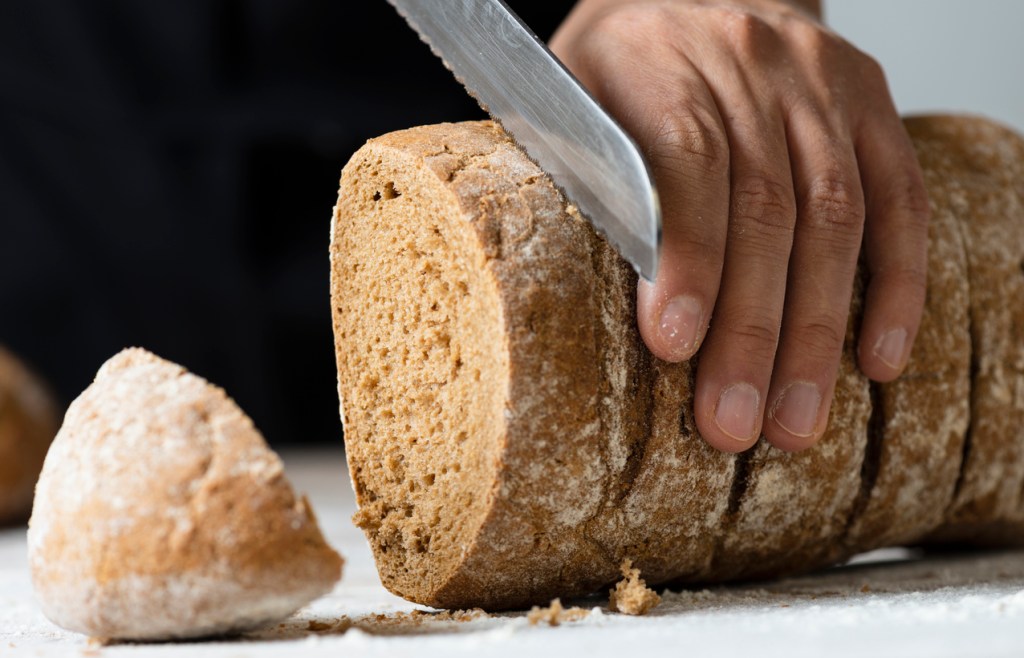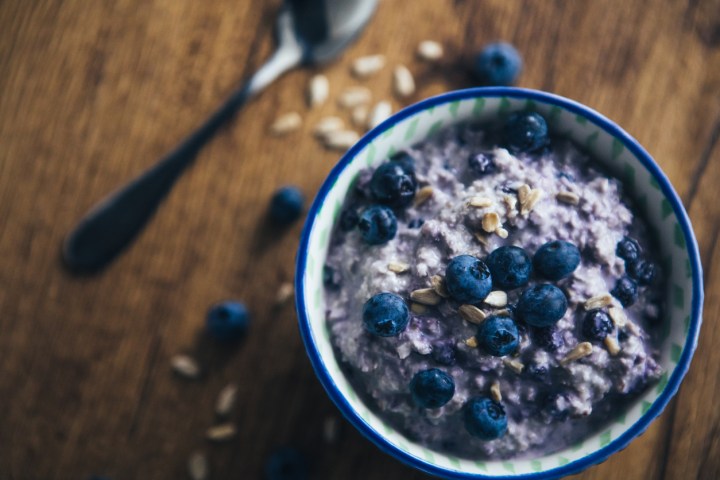How to Make Bread – Simple, Delicious Recipes for Your Bread Machine

Nothing beats the wonderful aroma of freshly baked bread, but making it from scratch can be tricky. Now all the laborious mixing, kneading, proving and baking can be done by your bread machine. All you need to do is to weigh out a few simple ingredients and let the machine do the work, creating loaves with maximum flavour and minimum fuss.
The benefits of home-baked bread are obvious. Not only do you get warm and fresh bread from your machine, you know exactly what’s in it – no additives or preservatives, only wholesome ingredients in a loaf created to suit your personal preferences.
This article takes you through the basic techniques and demystifies all that is essential to making good bread.
Choosing the right bread programmes
The recipes in this article have been tested in a variety of bread machines from different manufacturers and should suit all machines, but you should always read through the instruction manual which comes with your model, as programmes do vary from machine to machine and a few may require ingredients to be added in a different order to that given here. It’s important to choose the right programme to produce a perfect loaf of bread as the lengths of kneading, rising and baking times vary to suit the type of flour and other ingredients that you are using.
Simple White Loaf
This straightforward recipe produces a perfect, well-risen loaf. Inside, it is soft and light with an open texture, while the golden crust is finished with a very light dusting of flour. This makes an excellent starting point if you are new to bread machine baking.
Makes a 750g loaf
Ingredients:
325ml water
2 tbsp sunflower oil
500g plus 1 tsp strong white bread flour
1¼ tsp salt
1 tbsp caster sugar
1 tsp fast-action dried yeast
Quantities for a large (900g) loaf
390ml water
2 tbsp sunflower oil
600g plus 1 tsp strong white
bread flour
1½ tsp salt
4 tsp caster sugar
1½ tsp fast-action dried yeast.
Quantities for a small (450g) loaf
195ml water
1 tbsp sunflower oil
300g plus ½ tsp strong white bread flour
¾ tsp salt
2 tsp caster sugar
¾ tsp fast-action dried yeast
- Lift the bread pan out of the bread machine and fit the kneading blade. Pour in the water, then add the oil, followed by the 500g flour.
- Put the salt and sugar in separate corners of the pan, then make a shallow dip in the middle of the flour and add the yeast.
- Fit the pan into the bread machine, shut the lid and set to the basic white setting with a crust of your choice. Press start.
- After baking, lift the pan out of the machine using oven gloves. Carefully shake out the loaf to remove it from the pan, then transfer to a wire rack, standing the loaf on its base.
- Lightly dust the top with the remaining 1 tsp flour while the loaf is hot. Leave to cool.
Baker’s tip:
If preferred, you can brush the top of the dough with water and sprinkle with the flour just before baking starts. Alternatively, leave the crust plain and unfloured.
Traditional Wholemeal Bread
This wholemeal loaf has a fairly heavy and close texture. Made from the complete wheat kernel, wholemeal flour makes a more nutritious and fuller-flavoured bread than white, but the extra bran hinders rising, so a little more yeast is needed for good results.
Makes a 800g loaf
Ingredients:
350ml water
2 tbsp sunflower oil
500g strong wholemeal bread flour
1½ tsp salt
1 tbsp light soft brown
sugar
1½ tsp fast-action dried
yeast
Quantities for a large (950g) loaf
420ml water
2 tbsp sunflower oil
600g strong wholemeal bread flour
1½ tsp salt
4 tsp light soft brown sugar
1¾ tsp fast-action dried yeast
Quantities for a small (475g) loaf
210ml water
1 tbsp sunflower oil
300g strong wholemeal
bread flour
¾ tsp salt
2 tsp light soft brown sugar
¾ tsp fast-action dried yeast
- Lift the bread pan out of the bread machine and fit the kneading blade. Pour in the water, then add the oil, followed by the flour.
- Put the salt and sugar in separate corners of the pan, then make a shallow dip in the middle of the flour and add the yeast.
- Fit the pan into the bread machine, shut the lid and set to the wholewheat setting with a crust of your choice. Press start.
- After baking, lift the pan out of the machine using oven gloves. Carefully shake out the loaf to remove it from the pan, then transfer to a wire rack, standing the loaf on its base. Leave to cool.
Baker’s tip:
Vitamin C (ascorbic acid) is often added to wholemeal bread mixes to improve the volume of the loaf. Fast-action dried yeast usually contains this, but you may add a little extra to improve results. Try adding 1⁄4 tsp vitamin C powder or 1⁄2 finely crushed vitamin C tablet to the flour. Alternatively, use 1–2 tsp commercial dough improver.
There's nothing quite like the flavour and aroma of freshly baked bread. Your bread machine gives the pleasure of both with the least effort on your part. This book is for those who are new to bread making and those who want to expand their repertoire of recipes.
It takes you through the basic techniques and provides foolproof advice on how to make the perfect loaf. From simple, straightforward loaves, which cost a fraction of the shop-bought equivalent, to more elaborately flavoured and handshaped creations, you'll discover over a hundred delicious recipes that make the most of your bread machine's potential.
If you are concerned about what goes into the food you eat, you can now decide the ingredients of your daily bread yourself, and make bread that you will love. There are chapters on breads for those on special or restricted diets, such as gluten-free, and recipes using spelt and rye flours. All recipes are suitable for all makes of bread machine, and most recipes include ingredients for medium or large loaves or a small loaf using a compact bread machine.









